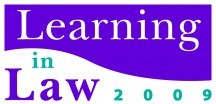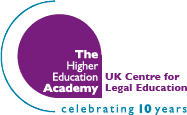Carl Henry Piggott: guilty or not guilty? Addressing the absence of forensic science skills in law degrees

In their paper Carole McCartney (University of Leeds), Roger Summers (Staffordshire University) and John Cassella (Staffordshire University) looked at an attempt to bring forensic science into the law curriculum, detailing a current project at Leeds in collaboration with forensic science educators from Staffordshire.
The session was blogged on Digital Directions.
The ‘problems’ with forensic science and mistakes made by experts in court are rehearsed in the media on an increasingly regular basis. Normally absent from such criticisms or wider critiques of the legal system is any examination of why it was that no lawyer was able to spot a potential issue, or why no legal professional had drawn attention to errors before damage was done.
The so called ‘scientific illiteracy’ among the general public appears then to reach into the legal profession. This is not surprising when looking at the scientific education (or lack thereof) of law students, most of whom have not studied any scientific discipline post 16. The traditional law degree dilates this educational lacuna by failing to introduce law students to even the most basic scientific concepts or to provide even a basic grounding in the work of forensic scientists. Yet upon qualification they are increasingly expected to understand and manipulate evidence from scientists and experts – the onus placed upon the expert to make their evidence understood by the non-expert.
It may prove beneficial if the lawyer had at least some basic knowledge of forensic science. In an attempt to address this, a project at Leeds is developing a Web-based forensic case study which students will work through before progressing onto seminar-based discussions, aimed at helping them to develop an awareness of decision making and constraints that govern the use of science within the justice system.
Carol Brennan (University of Buckingham) reports:
The objective of the presenters’ project is to address lawyers’ relative lack of involvement and understanding of forensic science (which can have serious impact on the the outcome of trials) by introducing it into the law curriculum. They have designed an extensive range of crime scenes, which are presented to students online, in pictorial and documentary forms. For our session one such crime scene was posted along a wall. After an introduction (which included a warning of adult themes), the participants adopted the role of defence solicitors and studied the photos, in conjunction with interim case reports and witness statements.
In discussion with the presenters we experienced the way forensic scientists approach a crime scene. Several participants had experience with the police service and they made valuable contributions. Constraints of time prevented the planned small group feedback sessions, however in plenary Carole, John and Roger fielded a number of questions and suggestions from enthusiastic amateur CSI investigators. The relevance of this project to not only criminology courses but also academic subjects such as evidence was also discussed.
About the presenters
Carole McCartney is a lecturer in criminal law and criminal justice at Leeds, previously of Bond University, Australia. She has written on Australian justice, innocence projects and DNA and criminal justice. She established the University of Leeds Innocence Project in 2005, of which she remains director, and was project manager for the Nuffield Council report on The forensic uses of bioinformation – ethical issues (2007).
Roger Summers is a senior lecturer in forensic science the Faculty of Sciences at Staffordshire University. A former director of forensic services in the police service, Roger has been involved in many high profile cases and was a member of the initial multi-national task force team deployed in the wake of the Asian Tsunami.
John Cassella is a professor of the Faculty of Sciences at Staffordshire University. He has worked in many of London’s teaching hospitals and has published widely in the area of medical sciences. John sits on a number of national groups promoting the development and improvement of the delivery of forensic education.
Last Modified: 9 July 2010



Comments
There are no comments at this time